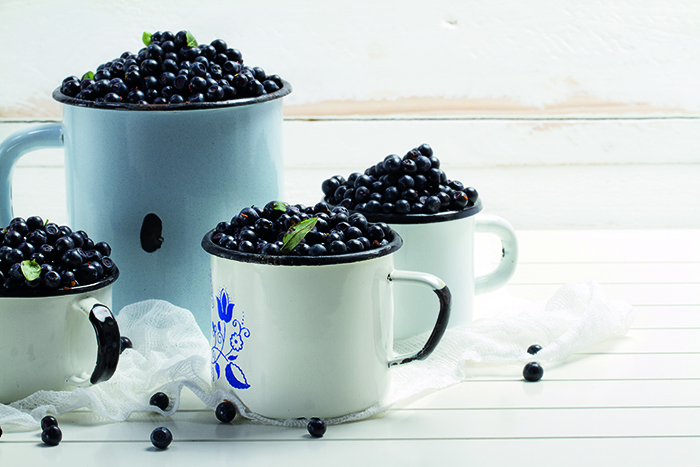It’s usually the Mediterranean diet that’s lauded for super-healthy credentials, but now researchers have found Nordic-style eating could hold the key to a younger brain.
Our neighbours in Northern Europe are well known for their buzzwords epitomising a healthy, balanced life, and now research has proven just how much their nutritious diet goes toward keeping them well. In fact, people who follow a Nordic-style diet are 80 per cent less likely to face cognitive decline than those who don’t, according to The Karolinska Institutet in Stockholm.
Unfortunately, this specific diet doesn’t mean loading up on cinnamon buns, fika-style (the Scandi version of ‘elevensies’!) rather plenty of fish, wholegrains and dark fruits.
‘Nordic people have a low-sugar way of eating with a balanced mix of protein, in particular oily fish and poultry, unrefined carbohydrates such as rye bread, oats and wholewheat pasta, plus plenty of non-root vegetables and fresh fruit and berries,’ says Dr Heather M Snyder from The Alzheimer’s Association (alz.org). As with the highly praised Mediterranean diet, avoiding processed food and eating as fresh as possible is encouraged, but a couple of key differences set the two eating styles apart. ‘The Mediterranean diet focuses on olive oil and fewer saturated fats.’ The Nordic diet uses a lot of cold-pressed rapeseed oil, which is also low in sat fats, but has ten times more Omega-3 than olive oil. The diet is also centered on glucose-balancing ingredients.
What’s more, the Nordic diet is arguably better suited to people living in similar cold-climate countries, including we Brits, than the Mediterranean diet as the specific foods tend to be fresher and more readily accessible.

Give your diet a Nordic makeover
Nutritionist Tracy Tredoux talks you through the cognition-boosting Nordic foods to pack onto your plate.
Rye bread
This typically Nordic bread is made with a fibre-rich complex carbohydrate, which, unlike refined carbohydrate, is digested more slowly, providing your brain with a gradual, steady release of glucose. Foods that provide a steady source of energy in this way are important for focus, concentration and overall brain health. Aim to eat one portion of an unrefined carbohydrate such as rye (perhaps topped with mackerel), barley or oats at each meal.
Dark berries
Bilberries, blueberries, blackcurrants and raspberries contain phytonutrients that improve communication between neurons, which slows cognitive decline. Add a handful to plain live yoghurt or the Nordic natural yoghurt, skyr, for a traditional treat.
Fatty fish
Salmon, herring, mackerel and other fatty fish contain large amounts of omega-3s, which are not only anti-inflammatory but help to preserve brain function over time thanks to brain-building DHA. Aim to eat a portion twice a week – for example a lunch of a smoked herring and spinach omelette and a dinner of baked salmon fillet in tomato sauce with wholewheat pasta.
Rapeseed oil
Rapeseed is the Nordic diet’s oil of choice. It has ten times more omega-3 and less than half the saturated fat of olive oil. It is also an excellent source of vitamin E – an antioxidant-rich vitamin that plays a key role in protecting brain membranes from oxidation. Look for one that’s been made using a cold-pressed production process though, which preserves the nutrients. Drizzle over salads or add a swirl to some Nordic winter barley and pea soup.
Cinnamon
Including this spice in your diet elevates the levels of a substance called sodium benzoate in your brain. This has various positive effects on brain function, assisting in the prevention of age-related neurological disorders. Sprinkle on a breakfast of porridge, bircher muesli or yoghurt and chopped apples.










